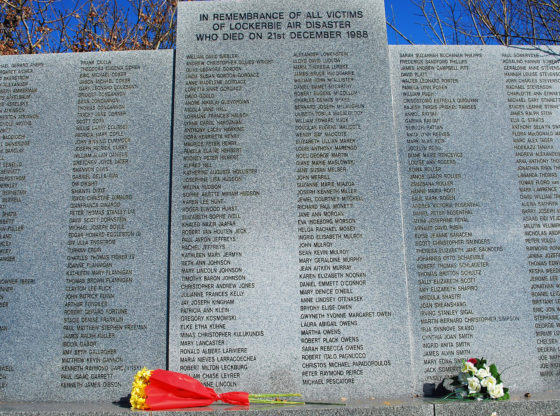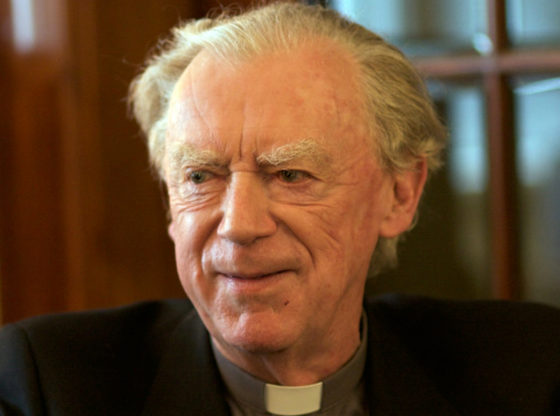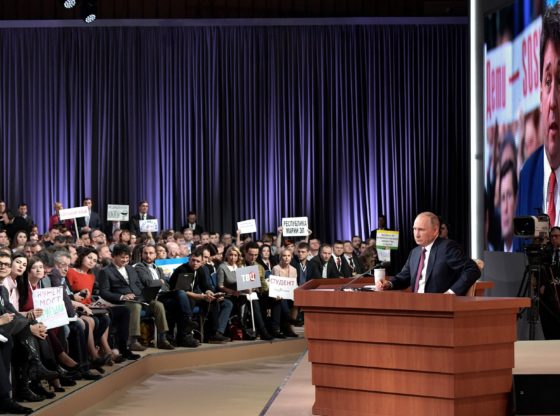In this month’s BLUE ON THE MAP, Norrie MacQueen shifts his focus to two United Nations (UN) operations which began in the 1990s, one at the beginning, the other at the end of the decade. Both had the task of managing conflicts around fiercely contested issues of sovereignty and statehood, in very different parts of the world.
The UN Mission for the Referendum in Western Sahara (MINURSO) and the UN Mission in Kosovo (UNMIK) are designed to ease the way to an acceptable international identity (or ‘final status’) for each territory. To date, these operations have failed in this task.
But this is to ignore some prior issues. Most fundamentally, are these tasks even achievable – or do the conflicts in Western Sahara and Kosovo belong in the box marked ‘problems that just don’t have solutions’? Beyond this, does a failure to reach the perfect outcome automatically invalidate a peace operation? Or do the myriad other roles that peacekeeping performs in the field justify the ventures, even in the absence of a final achievement?
The two missions examined here illuminate some of the most fundamental, and controversial, questions about UN peacekeeping.
At first sight, the two UN operations we’re looking at this month seem poles apart. One is a post-colonial border issue in Africa, typical of the mess left behind in the wake of European imperialism. The other is embedded in the mosaic of competing nationalisms in central Europe, and old ethnic conflicts in the Balkans reignited by the breakup of Yugoslavia. They are poles apart geographically, that’s undeniably true, but at their political and diplomatic roots, Western Sahara and Kosovo actually have much in common.
The challenges facing UN peacekeepers in each are, in many ways, similar. The essence of both conflicts involves the so-called ‘final status’ of each territory. Are Western Sahara and Kosovo to be independent states, members of the United Nations, and sovereign equals with every other country of the world? Or are they destined to be mere component parts of other states which claim a historical right to them?
In both cases the UN finds itself, in a very literal sense, in the middle: between the would-be Sahrawi Arab Democratic Republic and Morocco in one case, and between the Republic of Kosovo and Serbia in the other.
WESTERN SAHARA: SPAIN’S QUIET OCCUPATION
There’s a common tendency to see Spanish imperialism as beginning and ending in Latin America. From the end of the fifteenth century to the middle of the nineteenth, Spain exploited a huge swathe of the western hemisphere for its natural resources, and as a destination for settlers. Spain’s status as a great European power had risen, and then fallen, on the basis of this imperial project.
But while Spain was never a major actor in the scramble for Africa - on the level of Britain or France, or even neighbouring Portugal – it had ‘nibbled’ at the continent. Perhaps its best-known ventures had been north of the Sahara in Morocco, where the dubious romance of the Spanish foreign legion had been manufactured (and which had provided the springboard for the rightist coup that triggered the Civil War in 1936).
South of the Sahara, Spain had colonised a fragment of west-central Africa - modern day Equatorial Guinea. Few outside of Spain itself, though, had any inkling of its occupation of a stretch of coast and hinterland stretching south from Morocco and west of Mauretania, and with a fragment of (eventually very significant) desert border with Algeria in the east. Few, that is, until 1975 when Spain, newly free of Francoist imperial pretensions, decided to rid itself of the colony.
Madrid’s decision was driven in part by the creation in 1973 of an independence movement among the Sahrawi indigenous population. The Polisario Front (Frente Popular para la Liberación de Saguia el-Hamra y Río de Oro), was supported by Algeria which, at the time, was a leading global voice of radical anti-colonialism. With Spain’s departure imminent, the territory’s other - distinctly less radical - neighbours, Morocco and Mauretania, now began to jostle for annexation.
Aside from motives of brute territorial aggrandisement, both countries coveted Western Sahara’s phosphate deposits. More concerned to make good its own escape than to construct a viable and durable post-colonial settlement, Spain cobbled together an ill-thought-out plan which would simply have handed over the northern two-thirds of Western Sahara to Morocco, and the southern third to Mauretania. Needless to say, Polisario (and Algeria) had other ideas.
In the first few years following Spain’s withdrawal, Polisario pursued a fairly successful guerrilla war against what it saw as the foreign occupiers. It also set up a government in exile - the Saharan Arab Democratic Republic (SADR) - across the border in southern Algeria. In 1979, basically admitting defeat, Mauretania withdrew from the fray, giving up its claim to the territory.
Morocco proved more determined, however. And as it gained operational experience of Polisario’s hit-and-run desert warfare, its occupation became more effective. The occupiers also began the construction of a ‘berm’ - a three metre-high sand barrier. This ‘wall of shame’, as the Sahrawi call it, is extensively mined and runs for 3000 kilometres, virtually encircling the territory and reducing movement by Polisario forces.
MINURSO FORMED
Politically, the issue should have been an obvious one for resolution by the Organization of African Unity (the predecessor of the African Union). But the OAU was helplessly split between members supporting independence for the territory, and others backing Morocco’s claim. With some relief then, the African organisation passed the parcel to the United Nations.
In 1985 the UN Secretary General, the Peruvian Javier Pérez de Cuéllar, began to take a personal interest in the crisis. This led, three years later, to a rather shaky agreement by the Polisario and Morocco for a referendum on the future of the territory. In response, the UN Security Council created the UN Mission for the Referendum in Western Sahara (MINURSO - from the French Mission des Nations Unies pour l’Organisation d’un Référendum au Sahara Occidental).
The operation, which began in April 1991, has always been relatively modest in scale, never rising above the low hundreds of both military and civilian personnel. Larger forces have never been necessary as MINURSO has rarely had to confront direct hostile action from either side.
The mission has not, however, made much progress in achieving its fundamental mandate: the organization of a referendum on the territory’s final status. The main blame for this lies with Morocco. On the heels of Spain’s withdrawal, King Hassan of Morocco personally led the so-called ‘Green March’ of thousands of poor and landless Moroccans into the territory, in a clear attempt to change its demographic base.
The population statistics for Western Sahara have always been undependable. The last formal census was carried out by the Spanish colonial authorities in 1970, and even then was thought unreliable because of the large nomadic element of the population. The best contemporary estimates put the population at around 500,000, but this is complicated by the status of those Sahrawi in semi-permanent exile in the Algerian camps, and the status of Moroccans who arrived with the Green March, or have been encouraged by their government to migrate into the territory.
This situation has obviously created massive difficulties for the UN’s efforts at voter registration - and provided Morocco with an excuse for endless wrangling and temporising. Although UN-brokered talks have gone on more or less continuously since the mid-1980s, they show no greater prospect now than they did then of yielding any meaningful result.
United Nations Mission for the Referendum in Western Sahara (MINURSO)
First deployed: April 1991; Total strength (2017): 483; Contributing states (2017): Austria, Bangladesh, Bhutan, Brazil, China, Croatia, Djibouti, Ecuador, Egypt, El Salvador, Finland, France, Germany, Ghana, Guinea, Honduras, Hungary, India, Indonesia, Ireland, Kazakhstan, Malawi, Malaysia, Mexico, Mongolia, Montenegro, Nepal, Nigeria, Pakistan, Poland, Portugal, Russia, Sri Lanka, South Korea, Switzerland, Togo, Yemen; Fatalities (since 1974): 16
PEACEKEEPING versus PEACEMAKING
In many respects, the dilemma of MINURSO is similar to that of the UN force in Cyprus which we looked at in a previous Blue on the Map article. Peacekeeping in Western Sahara has been largely successful as ‘peacekeeping’, strictly defined. Violence has been more or less contained since the mission began in the sense that there’s been little large-scale fighting between Moroccan and Polisario forces.
Along with Morocco’s berm, MINURSO’s deployment of military observers along Western Sahara’s border with Algeria has reduced the possibilities for violence. But as in Cyprus, without an effective political process of peace-making running in parallel with the peacekeeping, there’s no obvious way forward. In Western Sahara, though, it may be that Morocco’s delaying tactics have already clinched the deal. ‘Facts of the ground’ have been created by Morocco through its migration policies and if these ‘new’ Sahrawi are included in any vote – as Morocco insists they must be – then the emergence of a new independent Sahrawi Arab Democratic Republic would be far from guaranteed if the referendum was ever held.
Paradoxically, the failure to achieve a final status for Western Sahara is due in part to the absence of any significant threat posed to wider international relations. The geopolitical isolation of Western Sahara means there are no pressing big power interests that could help drive the process on. No one has much either to gain, or lose, by one outcome or another.
Certainly, other parts of the north-west African region have fallen prey to Islamist insurgency, and this may be a longer-term threat. But the political stance of Polisario (and the influence the Front extends over the refugee camps of southern Algeria) remains rooted in the leftist Third World radicalism of the 1970s from which the movement emerged. Consequently, the UN Security Council has given the issue little attention in recent years.
The UN General Assembly has been more engaged. In 2013, it passed a resolution demanding that ‘a solution which allows the Sahrawi people to exercise their right to self-determination’ must be found. But in the broader tapestry of contemporary international relations, Western Sahara, although a continuing offence to the UN’s own core principles of self-determination, is not Syria, or Libya, or even Myanmar. The fate of the Sahrawi is not a priority for anyone beyond the territory itself – and of course Morocco.
KOSOVO AND ‘LIBERAL INTERVENTIONISM’
Before NATO’s action in Kosovo in 1999, the UN’s peacekeeping record in the former Yugoslavia had been mixed, to say the least. The lowest point came in the summer of 1995 when the UN-designated ‘safe area’ of Srebrenica had in effect been handed over to Bosnian Serb forces by the Dutch battalion of the UN Protection Force. What followed – the massacre of perhaps 8000 Bosnian Muslim men and boys – proved the last straw for the international community.
The UN was unceremoniously sidelined as NATO forces proceeded to destroy the Bosnian Serb war machine, opening the way for peace talks. The obvious failure of the UN in Bosnia, perhaps unfairly, detracted from some earlier achievements in Croatia, and then later in Macedonia. But when Slobodan Milošević, the Serbian nationalist president of what remained of Yugoslavia, attempted to destroy separatist aspirations in Kosovo, no serious thought was given to UN intervention. NATO, largely on the urging of Tony Blair, became the primary agent of armed humanitarian intervention.
The crisis in Kosovo differed from the earlier ones in other parts of what had been Yugoslavia. Kosovo had always been an integral part of Serbia, not a separate federal unit such as, for example, Slovenia, Croatia, or Bosnia. But despite this, Kosovo had historically enjoyed a fair degree of local autonomy because of its unique ethnic composition. Only about 7 percent of its population was ethnic Serb; the vast majority – the ‘Kosovars’ - were Muslim ethnic Albanians.
However during the 1990s, Milošević’s aggressive nationalism, piqued perhaps at having been frustrated in Croatia and Bosnia, sought to roll back Kosovo’s political rights. This triggered violence between Serb security forces and an increasingly powerful Kosovar movement for complete independence - the Kosovo Liberation Army (KLA). By 1999 the West, chastened and shamed by events in Bosnia four years earlier, was prepared to confront Serbian state violence and attempts at ethnic cleansing with force. After the failure of internationally-brokered peace talks at the beginning of 1999, the way was open for the exercise of what Tony Blair described as ‘liberal interventionism’.
AFTER NATO, THE UN TAKES OVER
NATO’s air campaign against Serb military and security assets in Kosovo, and strategic infrastructure targets in the Serbian-Yugoslav capital Belgrade itself, lasted from 24 March to 10 June 1999. NATO boots were then put on the ground in Kosovo. And, dangerously, so were Russian ones, leading to a number of tense confrontations. Although both sides of the intervention were eventually combined in a so-called ‘Kosovo Force’ (KFOR), the shortcomings of the arrangement were clear. Competing military blocs are not natural partners in an occupation. As a result, the attractions of the United Nations, hitherto overshadowed by its earlier shortcomings in the Balkans, had a renewed allure.
The big powers now moved back from their face-off in Kosovo and, acting together in the UN Security Council, created the UN Mission in Kosovo (UNMIK). This, to all intents and purposes, provided a UN ‘government’ for the territory (although technically, the notional sovereignty of Serbia was still recognised). UNMIK thus fits into a category of UN operation which might be described as ‘deep peacekeeping’, given its far-reaching international mandate. It wasn’t the UN’s first venture of this sort - nor would it be its last.
In the early 1960s, a United Nations administration had governed West New Guinea, replacing Dutch colonial rule as a preliminary to the territory’s transfer to Indonesia. In the early 1990s, a broadly similar arrangement was put in place in Cambodia to oversee its transition to democracy. Within a few months of UNMIK’s formation, a transitional administration was created for East Timor to provide a government for three years, prior to the country’s independence. (In fact, the exercise of executive power by an international organisation pre-dates the UN itself. The Saar region, between France and Germany, had been governed by the League of Nations after the First World War until its return to Germany in 1935.)
As its origins as a compromise between competing ethnic and international interests would suggest, UNMIK has had a difficult furrow to plough. NATO had intervened, in essence, ‘on the Kosovar side’. Unsurprisingly, the KLA took the intervention as a preliminary to internationally recognised independence. Russia, on the other hand, had traditional ethnic and political affinities with its fellow Slavs of Serbia, and insisted that the status quo ante (Kosovo as part of Serbia) should continue.
Free of the presence of Serbian forces, the Kosovar majority began what has, bluntly, been a campaign of persecution against the Serb minority, unleashing their own version of ethnic cleansing. Much of the violence has been focused on the northern city of Mitrovica which has become the stronghold of the dwindling Serb population of Kosovo. As the Canadian writer and politician Michael Ignatieff put it: “the moral script that justifies humanitarian intervention demands noble victims and the Kosovars are not playing by the script”.
This is a phenomenon familiar in other peace operations across the world. International intervention can change the local balance of power, and the consequences don’t always point to the moral superiority of the original victim.
The United Nations Mission in Kosovo (UMIK)
First deployed: June 1999; Total strength (2017): 349; Contributing states (2017): Austria, Bulgaria, Czech Republic, Finland, Germany, Hungary, Moldova, Poland, Romania, Russia, Turkey, Ukraine; Fatalities (since 1974): 55
UNMIK IN THE MIDDLE
UNMIK inevitably became the focus of the Serbs’ anger as it embodied the international intervention that had turned their world upside down. In July 2005, its offices were bombed in coordinated attacks. In 2008, one of its law courts was seized by Serb militants and a UN peacekeeper killed. As with MINURSO in Western Sahara, peace-building efforts aimed at guiding Kosovo to an acceptable final status have been reasonably assiduous. But in both conflicts, the positions of the two sides are quite simply incompatible, and it is difficult to see how the circles can be squared.
In Western Sahara, the binary choice is between an independent Sahrawi state and annexation by Morocco. In the Balkans, it’s between an independent Kosovar state and the re-imposition of Serb sovereignty. In Kosovo, these problems of statehood have to bear an additional burden: the diametrically opposed interests of the permanent members of the UN Security Council. The broadly pro-independence United States, Britain, and France confront the anti-secessionist, pro-Belgrade Russia and China. In 2007, the former Finnish President and veteran UN trouble-shooter, Martti Ahtisaari, produced a carefully drawn road map towards independence but this immediately hit the brick wall of the competing local and international positions.
The following year brought a fundamental shift in the situation, both for Kosovo and for UNMIK. In February 2008, the Kosovar-dominated parliament in the capital, Pristina, declared independence. This was immediately recognised by the United States and the main western European powers. Entirely predictably, it was rejected by Belgrade and Moscow.
The new Kosovar regime began to transfer powers to itself away from UNMIK. The UN’s responsibilities were further reduced at the end of the year with the creation of a European Union mission (‘Eulex’) which took over UNMIK’s policing and judicial functions. Meanwhile, the UN General Assembly had voted to pass the question of Kosovo’s declaration on independence to the International Court of Justice (ICJ). An agreed final status appeared further away than ever.
After 2008, UNMIK became a UN ‘presence’ in the territory, rather than a government. As with MINURSO in Western Sahara, it’s perhaps too easy to point up the shortcomings of the mission, rather than its achievements. In neither case has a final status for the territories in question been achieved. In Western Sahara, it may well be that Morocco, the overbearing regional power, is edging towards de facto victory as, for political and demographic reasons, the prospects of independence recede.
In Kosovo, the situation is, in a way, the reverse. Serbia, the larger local power, appears to be losing the territory to independence. In 2010, the ICJ produced the Advisory Opinion requested by the UN General Assembly. It found that the 2008 declaration of independence was ‘not illegal’. Although not a binding judgement, this opinion carries considerable international influence.
CAN WE TALK OF SUCCESS?
Despite the failure to reach an agreed final status in either territory, both UN operations can be said to have earned their keep. MINURSO and UNMIK have internationalised regional conflicts which might otherwise have spun downwards into chronic violence. In doing so, they have acted as global witness to the conduct of the parties. If this conduct hasn’t always been exemplary, either in the deserts of North Africa or on the streets of Balkan towns, we should ask: how much worse might things have been if the eyes of international peacekeepers hadn’t been watching?
In Kosovo, the UN’s role went much further than in Western Sahara. Who was to govern this post-conflict Balkan space, if not the United Nations? Could it simply have been handed back to Serbia? Unthinkable. Should the Kosovars have just been left to get on with it, in the full knowledge of what this would mean for the Serb minority? Equally unthinkable. Could the NATO powers have taken the territory over as their own protectorate? Not if Russia had anything to do with it – and it did.
As so often, recourse to the UN has been the obvious least-worst option. Neither MINURSO nor UNMIK worked the political and diplomatic miracles necessary to achieve the perfect outcomes. But each did manage many other things; some just above the horizon of world attention, some below it. In peacekeeping, ‘sweating the small stuff’ is sometimes a very necessary, and very worthy, activity.
Norrie MacQueen is the author of several books on the United Nations, peace operations and humanitarian intervention. He is co-editor of the Oxford Handbook of United Nations Peacekeeping Operations which has recently appeared in paperback, and he is on the editorial board of the Journal of International Peacekeeping. He was part of the Democratic Governance Support Unit of the UN integrated peacekeeping mission in Timor-Leste during 2012 in the final phase of the operation. Norrie is a Contributing Editor at CABLE. He is on Twitter at: @NorrieMacQueen Mail him at: [email protected]
Feature image: Britić.










